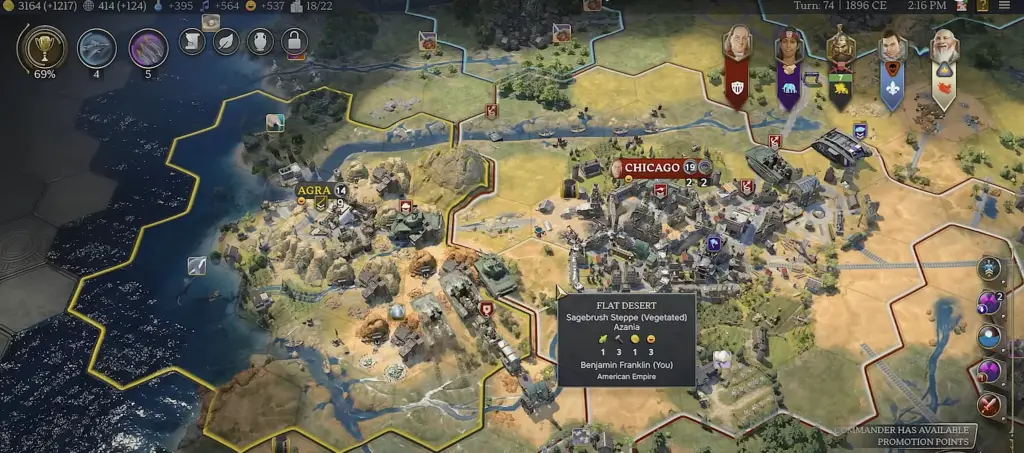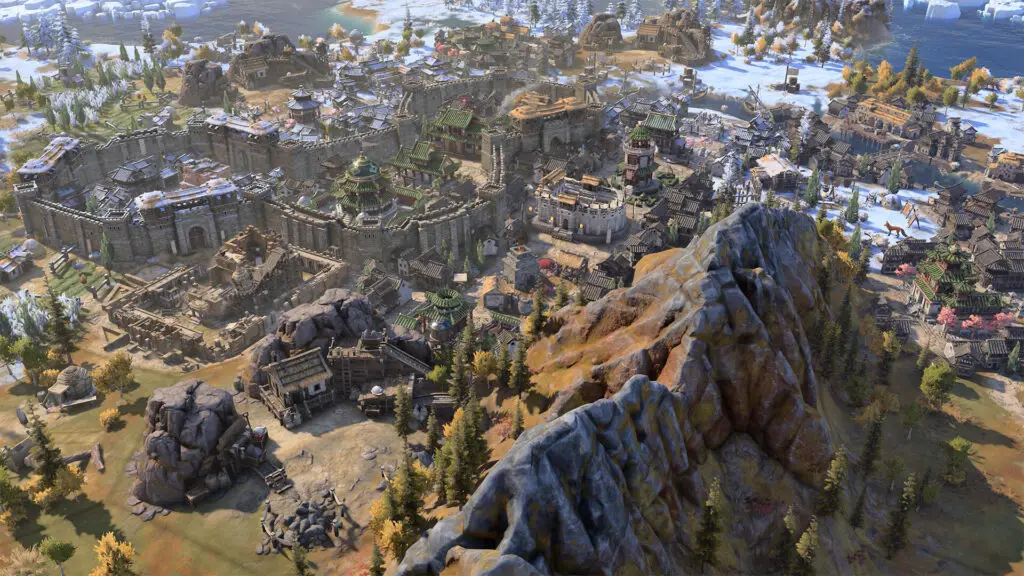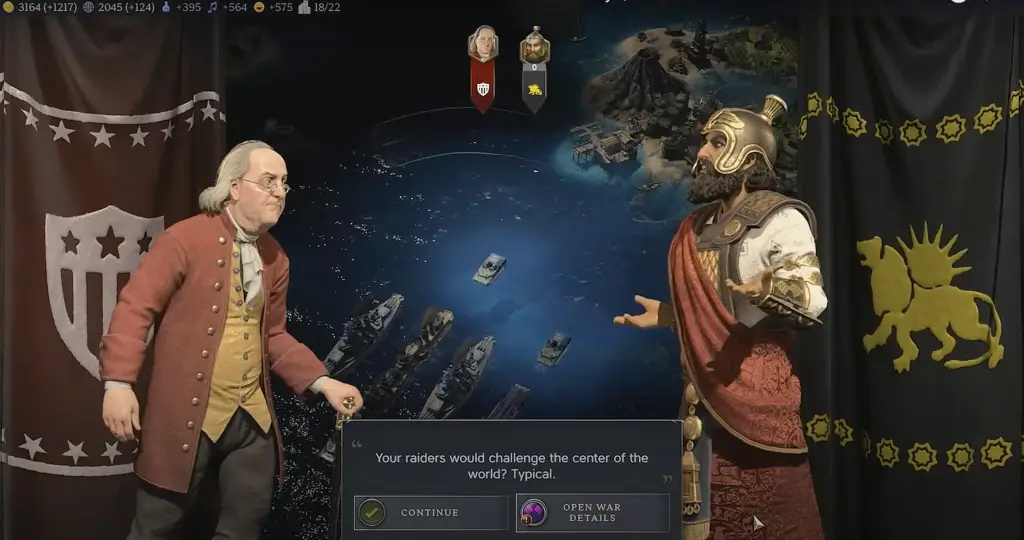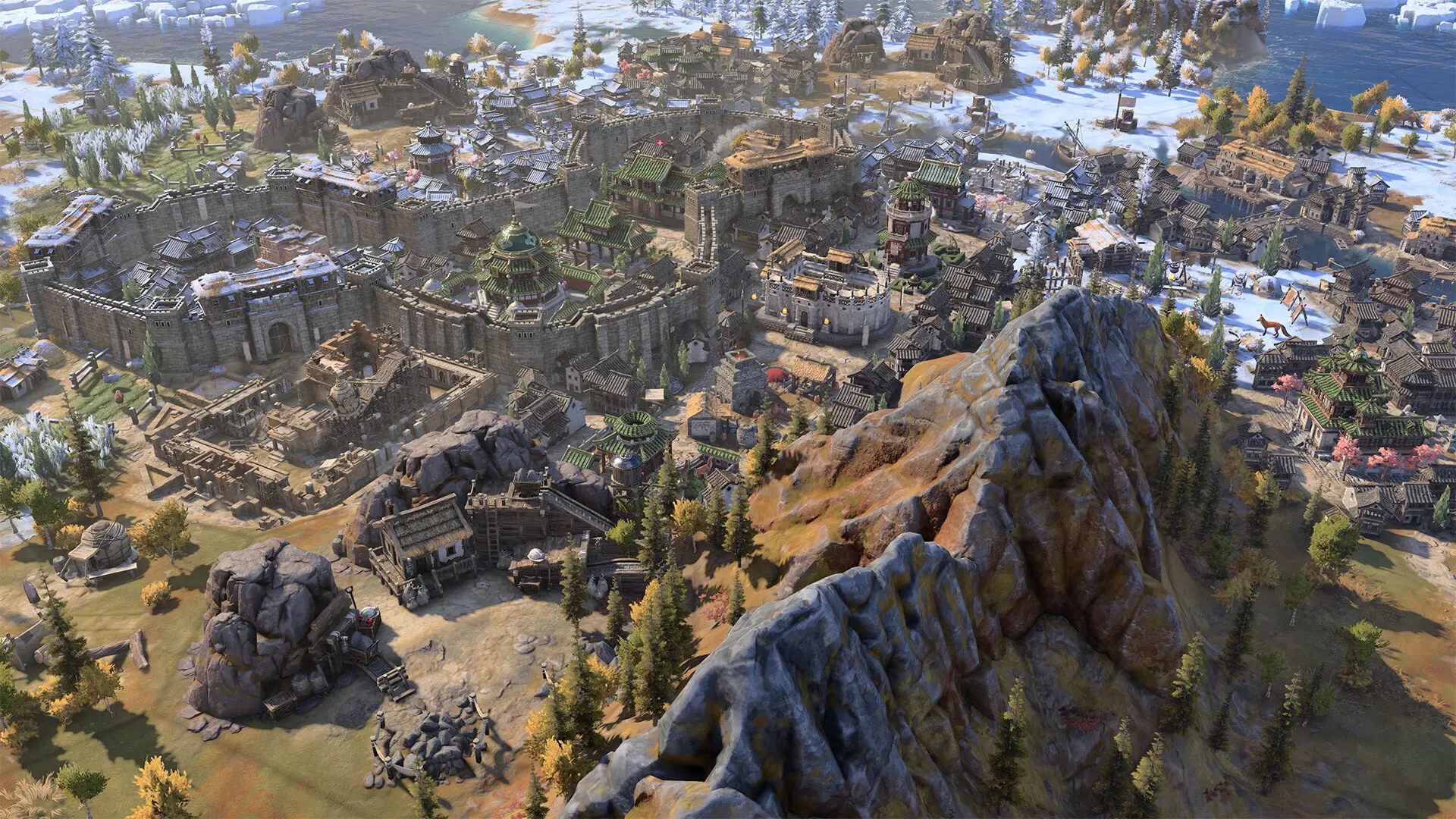Civilization VII, the latest entry in the award-winning strategy franchise, introduces revolutionary changes to the series’ classic formula. Consequently, this comprehensive guide covers everything you need to know about the upcoming title, from its groundbreaking new features to release information.
A New Age-Based Structure
For the first time in the series’ history, Civilization VII divides gameplay into three distinct Ages: Antiquity, Modern, and Modern Times (ending approximately in the 1960s). Moreover, each Age functions as its own rich, nuanced journey with unique civilizations and gameplay systems.

During these Ages, players must accomplish significant milestones across scientific, cultural, militaristic, and economic paths. Subsequently, these achievements unlock powerful advantages for subsequent Ages, creating a dynamic progression system that encourages strategic adaptation.
Crisis System and Age Transitions
Furthermore, each Age concludes with a crisis event, such as epidemics, barbarian invasions, or social tensions. Additionally, these events challenge players to make crucial decisions through policy cards, potentially affecting their civilization’s trajectory. When transitioning between Ages, all civilizations begin at similar technological levels, ensuring competitive balance throughout the game.
Revolutionary Leadership System
The game introduces unprecedented flexibility in leadership selection. Specifically, players can now choose their leader independently from their civilization, enabling new strategic combinations. Additionally, leaders can earn customizable attributes through gameplay, allowing for reinforcement or strategic pivoting between Ages.
Leader Unlocking System
Notably, players unlock new leaders by completing specific challenges related to their historical significance. For instance, France becomes available after improving a certain number of wine resource tiles, while Prussia requires maintaining a specific number of generals in your army.
Reimagined City Development
Civilization VII transforms the traditional city-building mechanics. Notable changes include:
- Buildings now occupy separate fields on the map
- Two buildings can be constructed per field
- Terrain improvements grow with population instead of worker units
- Cities visually expand across territory as they develop
- Settlements can upgrade into full cities
Resource Management and Trade
Moreover, the game introduces a new merchant system for resource acquisition. Instead of direct trading with other civilizations, merchants can be sent to distant cities to access their resources. This system creates more dynamic economic gameplay and encourages exploration.
Enhanced Visual Experience
The game features significant graphical improvements:
- Multi-layered landscapes with stunning detail
- Navigable rivers that influence gameplay
- Detailed city expansion visualization
- Face-to-face diplomatic interactions
- Diverse cultural architectural styles
- Natural wonders with unique visual representations

Military and Diplomatic Systems
Army Management
Civilization VII introduces a new army management system where:
- Units can be moved as cohesive armies
- Commanders lead military forces
- Units automatically upgrade between Ages
- Combat mechanics have been streamlined
Diplomatic Relations
The diplomatic system includes:
- Various treaties for scientific, cultural, and food benefits
- Enhanced city-state interactions
- Simplified but focused diplomatic options
- New espionage mechanics integrated into diplomacy

Multiplayer Features
Civilization VII supports:
- Cross-platform play between PC and consoles
- Up to 5 players in Antiquity & Exploration Ages
- Up to 8 players in Modern Age
- Single-Age sessions for shorter games
- Full multi-Age campaigns
- Online progression bonuses
- Customizable match settings
Government and Policy System
The game features various government types including:
- Autocracy
- Democracy
- Monarchy
- Additional systems unlocked through progression
Each government type provides unique bonuses during golden ages and influences policy choices.
Religious and Cultural Systems
The religious system has been streamlined but remains important:
- Temple buildings provide city bonuses
- Religious spread mechanics affect gameplay
- Cultural influence impacts city development
- New World’s Fair victory condition
Where and When to Buy
Civilization VII releases on February 11, 2025. Pre-purchase options include:
Standard Edition
- Base game
- Tecumseh and Shawnee Pack (pre-purchase bonus)
Deluxe Edition
- Base game
- Tecumseh and Shawnee Pack
- Additional content (TBA)
You can Pre-Purchase Sid Meier’s Civilization® VII on Steam
Founders Edition
- Base game
- Tecumseh and Shawnee Pack
- Premium content
- Exclusive bonuses
Technical Requirements
Minimum System Requirements:
- OS: Windows 10 64-bit
- CPU: Intel i5-4690 / Intel i3-10100 / AMD Ryzen 3 1200
- RAM: 8GB
- GPU: NVIDIA GTX 1050 / AMD RX 460 / Intel Arc A380
- DirectX: Version 12
- Storage: 20GB
Recommended System Requirements:
- OS: Windows 10 64-bit
- CPU: Intel Core i5-10400 / AMD Ryzen 5 3600X
- RAM: 16GB
- GPU: NVIDIA RTX 2060 / AMD RX 6600 / Intel Arc A750
- DirectX: Version 12
- Storage: 20GB
Steam Deck Compatibility
Additionally, Civilization VII has been optimized for Steam Deck. The game runs smoothly on the portable device, though some visual details may be harder to appreciate on the smaller screen. However, the interface has been adapted for comfortable portable play.
Sources: Civilization 2K, XboxEra, GamePressure

